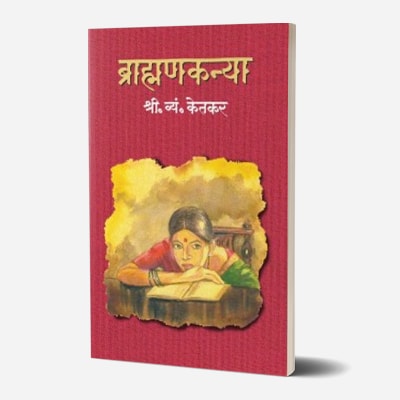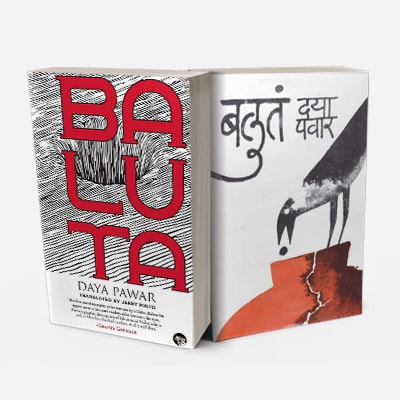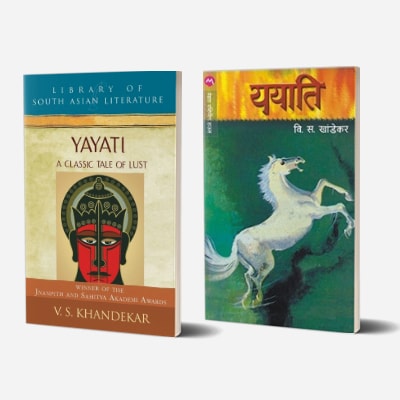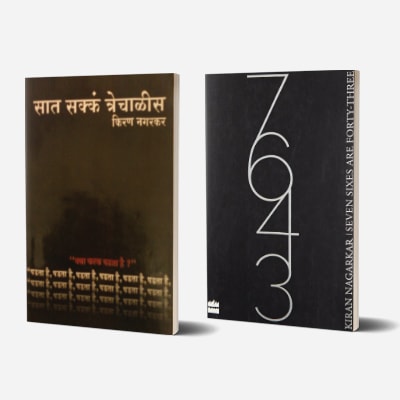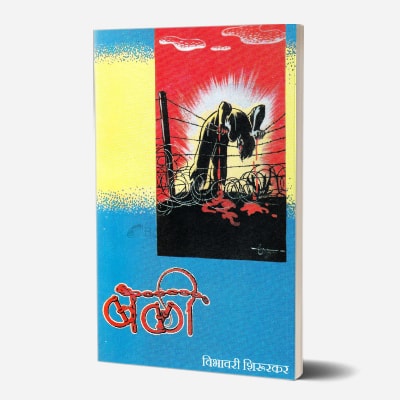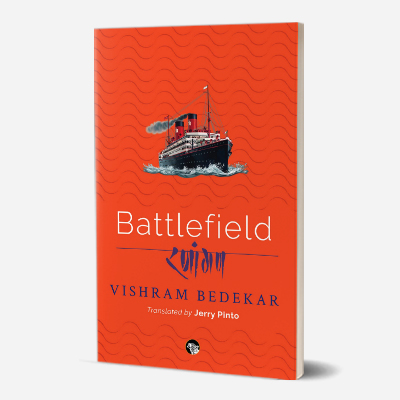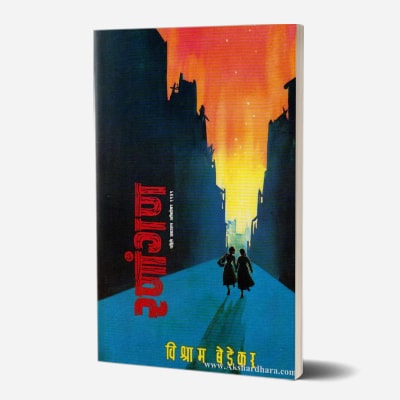Saat Sakkam Trechalis
By Kiran Nagarkar
Translated by Shubha Slee
Saat Sakkam Trechalis (meaning ‘seven sixes are forty-three’) is an exercise in the exploration of the complexities of the human psyche. It traces the stream of consciousness of the narrator-protagonist Kushank as he introspects, retrospects, and occasionally addresses his lady-friend “you.” He shares his life from his failed romances to his childhood with the readers. Called the “quintessence of disjuncture” by Nagarkar himself, the novel has a shifting narrative with no chronology. The novel, known for its dark and pessimistic take on life, made Nagarkar the enfant terrible of Marathi literature.
Saat Sakkam Trechalis remains a must-read for its unique storytelling and manipulation of language.
About the Author
Kiran Nagarkar is a Marathi and English writer infamous for his deviations from literary conventions. An enthusiastic reader of Newsweek and Time, he wrote his first short story while studying at Fergusson College. In 2001, he was awarded a Sahitya Akademi Award for his novel Cuckold. His bibliography includes the controversial works Bedtime Story (1978) and Ravan and Eddie (1994). The city of Munich has awarded him a scholarship and he has even received a Rockefeller Grant.
Bali
By Vibhavari Shirurkar
Translated by Yashodhara Deshpande
Set in colonial India, Malati Bedekar (who wrote under the pseudonym of Vibhavari Shirurkar), explores what governance by the Criminal Tribes Settlement Act meant for us a society. Bedekar paints a sympathetic story of the criminals forced to live in wire-fenced settlements in Bali (‘The Victim’, 1950), raising the question: who is a “criminal”?
Released in 1950, Bali was based on her close observation of the way of life followed by the so-called criminal tribes. From 1937 to 1940 she served in the Criminal Tribes Settlement and had gained an unique insight. A powerful novel, Bali revolves around one of the members of this settlement who sought liberation for himself and his fellow-men. However, being ahead of his times met with an untimely death. Perfect characterisation, especially of a mother and an old man are life-like and go straight to the readers heart. Malati Bedekar is superb in her art of inciting the reader to rise in revolt against the dirt, squalor and immorality prevailing in the tribe and lifting them to the stance of humanity showcasing that human power to rise out of his situation is the noblest and best in life.
In today’s world, we often forget the atrocities of the colonial rule; there is a whole generation of readers yet to be acquainted with these realities. Bali gives us the opportunity to reconcile with our past.
The novel was translated to English by Yashodhara Deshpande.
About the Author
Malati Bedekar (1905-2001) is considered to be the first prominent feminist writer in Marathi literature. The daughter of writer Anant Khare, she was brought up in a household that valued education and independence. One of her popular works Kharemaster is based on her father. Her first book Kalyanchi Nishwas was a short-story collection about women trying to break free from social conventions; it explicitly depicted sex, patriarchy, and exploitation. Upon its release, it created a storm, also establishing Bedekar as a force in her own right. The stories were so hard-hitting that there were several threats to the life of ‘Vibhavari Shirurkar’ (although no one yet knew her real identity). She followed this up with Hindolyawar (The Swing) that year i.e. 1933 and Virlele Swapna (The Faded Dream) in 1935. After a pause during which she did a Ph.D. in Sanskrit, in 1946 she revealed her true name, and published Bali (The Victim) in 1950, Kharemaster and the semi autobiographical Shabari about a woman stuck in a marriage in 1956. She won the Maharashtra State Award in 1964.
Ranangan
By Vishram Bedekar
Translated by Yasodhara Deshpande-Maitra
A tragic love story between Chandrakhar Vidwans, a Maharashtrian returning from England to India, and Harta, a refugee escaping Hitler’s Germany, Ranangan (meaning ‘battlefield’) questions identity in a world on the brink of World War II. Primarily set on a ship, we see how a chance encounter between a European despised for her inferior race and an Indian insulted by white waiters leads to them finding solace and love in each other and their tragic separation as Chandrakhar disembarks in India and Harta can’t. This Marathi novel, which created a storm upon its release, is a rousing investigation of nationality and belonging.
Discrimination based on caste, race, and religion is still a problem in today’s world. Ranangan, an illustration of this problem, gives its readers the opportunity to reflect on this.
About the Author
Vishram Bedekar (1906-1998) was a popular Marathi writer and film maker. Ranangan (1939) is his only novel. In 1985, he was awarded by the Sahitya Akademi for his autobiographical work Ek Jhad Ani Don Pakshi. He has directed over 15 Marathi and Hindi films.
